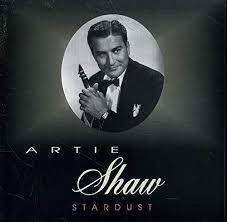
Daily Dose Of Jazz…
Lennie Hayton was born Leonard George Hayton on February 14, 1908 in New York City into a Jewish family. He developed a penchant for the piano when he was six years old, showing unusual interest in the early classics from the rolls of the family player piano. His parents disliked jazz, so it wasn’t until he was sixteen that he really discovered it. He left high school to become pianist with the Broadway Hotel Orchestra of Cass Hagen, a boyhood friend.
While playing at the Park Central, Hayton was heard by Paul Whiteman and immediately engaged by him in 1928 as second pianist, playing piano and celeste as well as acting as a part-time arranger. Whilst with the orchestra, he played with Frankie Trumbauer, Bix Beiderbecke, Red Nichols, Joe Venuti and became friendly with Bing Crosby, then a member of The Rhythm Boys. However, by 1930 due to the impact of radio on audiences, Whiteman released ten members of the band. Hayton then joined the Charles Previn Orchestra.
Rejoining Crosby he embarked on a cross-country tour, landing in Hollywood. 1932 saw Hayton leading an orchestra for his first recordings of Cabin in the Cotton, Love Me Tonight, Brother, Can You Spare a Dime? and Some of These Days all became Bing hits. The following year , Hayton became the musical director for the Chesterfield radio series Music That Satisfies which again featured Crosby and ran for 13 weeks.
His involvement with Crosby continued as musical director for the singer’s 1933 film Going Hollywood at Metro-Goldwyn-Mayer. This led to a major career for Hayton who continued to work with Crosby and became a musical director for MGM and guided it through its prime years as foremost producer of movie musicals. Up until his retirement from the post in 1953, Lennie racked up four Oscar nominations: The Harvey Girls, The Pirate, Singin’ in the Rain and Star! He won the Academy Award for music for On the Town and Hello, Dolly!.
He arranged for Frank Sinatra, composed Apple Blossoms with Joe Venuti, Frankie Trumbauer, and Eddie Lang, and his other compositions included Flying Fingers, The Stage is Set, Mood Hollywood with Jimmy Dorsey, and Midnight Mood. Hayton also co-arranged the Hoagy Carmichael composition Stardust with Artie Shaw for Bluebird Records.
His first marriage to Helen Maude Gifford ended in her death in 1943. Three years later he married Lena Horne whom he met on the MGM lot. Throughout the marriage, Hayton also acted as Horne’s music director. Facing the stresses and pressures of an interracial relationship, they had a tumultuous marriage, first based upon her desire to advance her career and cross the color-line in show business, but she had learned to love him very much.
Pianist, composer, conductor and arranger Lennie Hayton, whose trademark was a captain’s hat worn at a rakish angle, died of a heart attack while separated from Horne, in Palm Springs, California on April 24, 1971.
More Posts: arranger,composer,conductor,history,instrumental,jazz,music,piano


